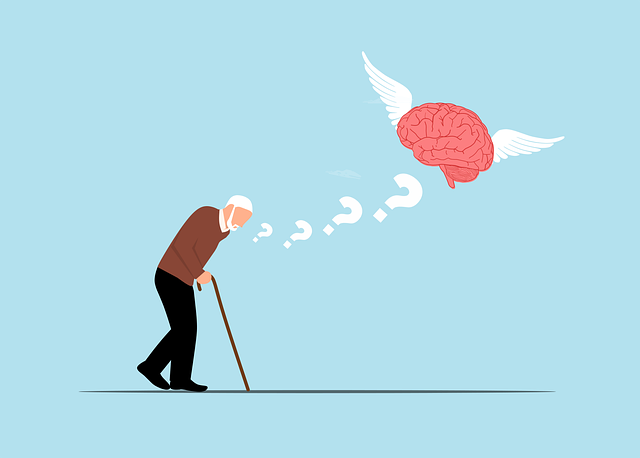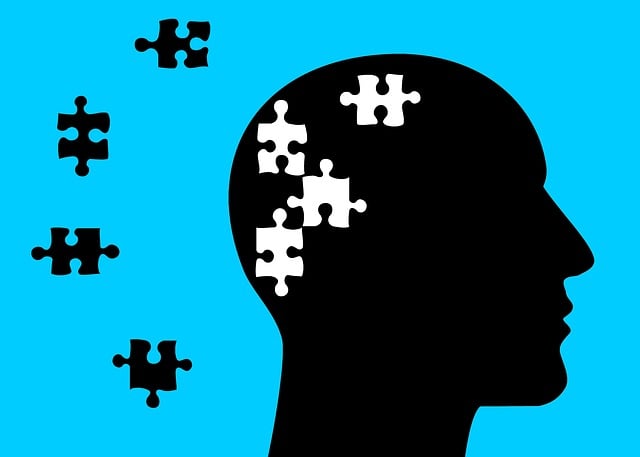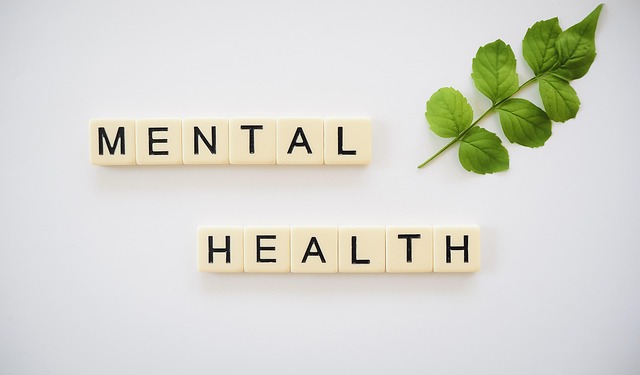Cultural competency is vital for healthcare providers in a multicultural society, ensuring equitable access to quality mental health care. It involves understanding and respecting diverse cultural values, beliefs, and practices, impacting therapy outcomes, particularly for children and couples counseling. Effective training requires structured programs covering implicit biases, culturally specific communication styles, case studies, role-playing, and real-world examples tailored to specialties like therapy for children and couples counseling. Implementation includes diversity training, empathetic response scenarios, integrating culturally sensitive resources, fostering open dialogue, and advocating for systemic changes. Evaluating training effectiveness involves tracking attitudes, behaviors, and patient outcomes through surveys and continuous improvement models, ensuring relevant, adaptive programs that optimize cultural competency for enhanced mood management within healthcare teams.
In today’s diverse healthcare landscape, cultural competency is no longer an option but an imperative. Understanding and respecting cultural differences in therapy for children and couples counseling are crucial for delivering effective care to a wide range of populations. This article explores essential components of healthcare provider training, strategies for implementation, and methods for measuring the impact, ultimately aiming to enhance patient outcomes through culturally competent practices.
- Understanding Cultural Competency in Healthcare: Why It Matters for Diverse Populations
- Designing Training Programs: Essential Components for Effective Learning
- Strategies for Implementing Cultural Competency Training in Clinical Settings
- Measuring Impact and Continuous Improvement: Evaluating the Effectiveness of Training
Understanding Cultural Competency in Healthcare: Why It Matters for Diverse Populations

Cultural competency in healthcare refers to the ability of providers to understand, appreciate, and effectively interact with patients from diverse cultural backgrounds. This includes recognizing and respecting different values, beliefs, and practices that shape individuals’ health experiences. In a society becoming increasingly multicultural, this skillset is vital for ensuring equitable access to quality care for all populations.
When healthcare providers lack cultural competency, it can lead to miscommunication, mistrust, and even ineffective or inappropriate therapy for children and couples counseling. For instance, what might be considered normal behavior in one culture could be perceived as disrespectful in another. This can hinder patient-provider relationships, impacting treatment outcomes. Moreover, cultural competency fosters the development of coping skills and promotes compassion cultivation practices, which are essential in preventing issues like depression among diverse communities.
Designing Training Programs: Essential Components for Effective Learning

Effective cultural competency training programs for healthcare providers must be meticulously designed to ensure impactful learning outcomes. Firstly, a comprehensive curriculum that covers diverse cultural topics is essential, addressing various ethnic, racial, and socio-economic backgrounds. This includes content on implicit biases, microaggressions, and culturally specific communication styles. Incorporating interactive activities, case studies, and role-playing scenarios allows trainees to apply these concepts in practical settings.
Additionally, training should include a mix of theoretical knowledge and real-world examples relevant to different healthcare specialties, such as therapy for children, couples counseling, and crisis intervention guidance. Mentoring from experienced professionals who can offer insights into navigating cultural complexities can greatly enhance learning. Moreover, integrating mental health policy analysis and advocacy ensures that trainees understand the broader systemic impacts of cultural competency in healthcare delivery. Community outreach program implementation is another critical component, providing hands-on experience in engaging diverse communities and addressing their unique needs.
Strategies for Implementing Cultural Competency Training in Clinical Settings

Implementing cultural competency training in clinical settings involves a multifaceted approach tailored to meet diverse patient needs. One effective strategy is incorporating diversity training for healthcare professionals, focusing on topics like unconscious bias and cultural nuances specific to various communities. Role-playing scenarios centered around common challenges faced by minority groups can help practitioners develop empathetic responses. Additionally, integrating mental health resources sensitive to cultural contexts, such as offering therapy for children and couples counseling with diverse therapists, ensures that patients receive care aligned with their backgrounds.
To foster a supportive environment, organizations should encourage open dialogue through regular staff meetings and workshops dedicated to discussing cultural competency. Burnout prevention strategies, including Mental Wellness Journaling Exercises, can further enhance practitioners’ resilience and cultural sensitivity. These initiatives are complemented by advocacy efforts, such as Mental Health Policy Analysis and Advocacy, which promote systemic changes to address healthcare disparities.
Measuring Impact and Continuous Improvement: Evaluating the Effectiveness of Training

Evaluating the effectiveness of healthcare provider cultural competency training is a multifaceted process that goes beyond mere knowledge assessment. It involves measuring changes in attitudes, behaviors, and patient outcomes over time. One way to assess impact is through pre-and post-training surveys, which can gauge participants’ perspectives on their newfound skills and confidence in serving diverse populations. These surveys should cover areas like communication strategies, bias recognition, and comfort levels when addressing cultural sensitivities in therapy for children and couples counseling.
Moreover, continuous improvement models should be implemented to ensure training remains relevant and effective. This includes collecting feedback from both providers and the communities they serve, analyzing mental health policy analysis and advocacy trends, and incorporating emerging best practices into the curriculum. By fostering a culture of ongoing evaluation and adaptation, healthcare organizations can optimize their cultural competency training programs, enhancing not only inner strength development but also mood management strategies within their teams.
Cultural competency training is a game-changer in healthcare, ensuring providers can offer effective therapy for children and couples counseling while addressing diverse cultural needs. By implementing these essential components and strategies, as outlined in this article, professionals can create inclusive environments that foster trust and improve patient outcomes. Measuring impact through evaluation allows for continuous improvement, ultimately enhancing the quality of care for all populations.














